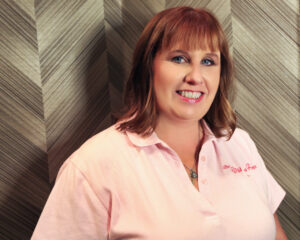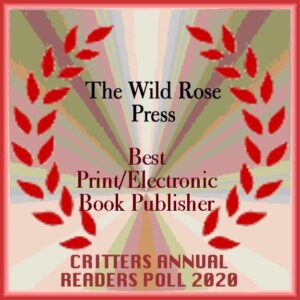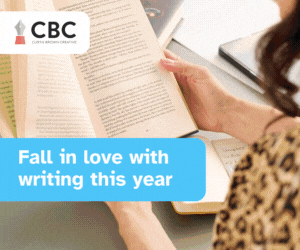Ask An Industry Expert: Rhonda Penders
21 May 2021
Today I’m delighted to welcome Rhonda Penders, Co-Founder/President & Editor-in-Chief of The Wild Rose Press.
 Hello and welcome, Rhonda. Could I begin by asking you about the concept behind your founding of The Wild Rose Press?
Hello and welcome, Rhonda. Could I begin by asking you about the concept behind your founding of The Wild Rose Press?
I have to take you back to 2006 and my own, plus my business partner, RJ Morris’s, experiences of the the publishing world. We were both published authors and friends and hated how long it took publishers to get back to authors on queries. Some big houses would take almost two years just to say yes or no. If they said no, you never knew why. It was simply “thanks but no thanks”. We also hated how there was this wall up between publishers and authors – you never could just talk to someone or email them. We decided we wanted a better experience for writers.
Back then, ebooks were not even really a thing. People weren’t epubbed or, if they were, it didn’t count as published. But we knew that electronic publishing was going to be big. It was going to be as important as print books. So with RJ’s brilliance in technology and my social skills, we put together a small publishing company. Six other writer friends agreed to help us out really only on a promise. It was basically, we are going to all do this for fun and if it turns into something, we will figure out the rest as we go. Now we are in year 15 and we kind of figured it out. So you might say we didn’t really intend to start a business, we just wanted the publishing experience to be better.
 And during those 15 years, the company has won the Critters Annual Readers Poll Best Print/Electronic Book Publisher award 13 times. Congratulations! I’m guessing you’re not quite the ‘small press’ you started out as.
And during those 15 years, the company has won the Critters Annual Readers Poll Best Print/Electronic Book Publisher award 13 times. Congratulations! I’m guessing you’re not quite the ‘small press’ you started out as.
While we may not be as small as we once were, we have over 3500 active titles out there and a staff of 35 across the USA (and also in the UK and Canada), we are still considered by those in the industry to be a small press and that’s okay with us. We like to think of small as cozy and warm and comfortable. We don’t want to be a big house that loses its communication with each author.
You mentioned that you and RJ anticipated that electronic publishing was going to be big. How do you view the future balance between print and ebooks?
Our policy is to publish every book of 45,000 words plus in both print and ebook. Our shorter stories are only in ebook and we have some series that are shorter stories, One Scoop or Two, for example that are only in ebook format but then we generally will put the short stories together into an anthology that goes to print.
I don’t think that there is really anything that will change drastically at this point. The majority of readers do both. The option to read on your phone or to read on a tablet is so convenient that most readers have moved to this platform, but many still love to hold a print book and frankly to get off of the screen and take a break from that blue light. I think too that audio books will continue to grow in popularity as the younger readers continue to age and are more comfortable with that form of listening to a book rather than reading one.
You have a number of different ‘roses’ as genre sub-categories, each with defined content. What advice would you give to authors about fulfilling these?
With any publishing house that you query, you need to study their website and understand what they want and how they want it. Read the submission guidelines. Find the place your book best fits.
Given that some elements may cross over between sub-categories, how do you decide the final classification and does that choice then influence things like the cover design or how you market it?
If a book crosses genres or subgenres, the senior editors for those two lines will generally review it and make the determination. If it really fits both and they can’t decide, then the author will be asked if she/he has a preference. Cover art is always something we work with the author on so that, for the most part, decisions will be with him/her on what goes on the cover.
I notice that you accept submissions in genres other than romance, including women’s fiction, mystery/thriller, historical and erotica. Does having a story line involving an adventure or a mystery to be solved, or crime/thriller content, make a story more saleable because of widening the appeal, compared to ‘just romance’?
Yes and No. We have a large audience that enjoys romantic suspense or paranormal romance but we have just as many readers that just want a romance. The popularity of the Hallmark movie channel shows us that a lot of readers want to escape into that world of happily ever after. Frankly, a writer should write what they want to write and not try to guess what the audience wants.
Your submission guidelines ask for the first 5 pages of the m/s. What do those opening 5 pages needs to demonstrate to make you want to see the rest of the m/s?
The first five pages need to grab an editor, which means they will grab the reader. Every writer should pick up several books and flip them open and read the first five pages. Which ones grabbed you and made you buy the book or turn the page? Which ones didn’t? Why? Often its because writers try to give way too much back story or boring details in those pages, when what the reader wants is to be transported immediately into that story. An editor will always gravitate to the first five pages of a story that makes her want to read more. That’s huge.
Your guidelines also specify a highly detailed synopsis Any advice on how to produce a gripping synopsis, how to make yourself stand out from the rest?
Writing a good synopsis is just something you have to practise with. Writing groups work on these all the time. They are very difficult to get right. The reality is you need to give the editor all the story without too much of the story. We need to know the important parts without all the details. And never ever leave it hanging. You do not want to tell an editor “to find out the ending you have to read the story.”. No we don’t. And we won’t! We need the whole story–beginning, middle and end.
Diversity and inclusion are high on the agenda for the RNA, as for many other organisations. How do you encourage this and how does your selection of books and authors reflects these principles?
We have always, since we opened, welcomed stories with characters of different color and sexual orientation. The problem we have always had is lack of material. We won’t contract something just to put it on our website and show we are inclusive. It has to be a good story. That’s how we judge every story no matter the characters. Is the story a good story? Yes, then let’s contract it.
What is your typical working day like?
My office has always been at my home. I have a building on my property where my office is located and I am in there three seasons of the year. In the dead of winter, I work in my office inside my house as I don’t want to trudge through the snow–lol. My workday has always started very early. I am an early riser so I’m on the computer by 5:00 a.m. eastern most days. I answer emails, I deal with issues, and then by 9:00 a.m. I am on the phone or Zoom calls with editors and my business partner and I work pretty steady through to mid afternoon. I stop around 3 most days and shut down for a while but generally by 7:00 p.m. that night I’m back on the laptop working on whatever I need to get done. I don’t work on Friday nights but I do put in a few hours every Saturday and then I shut down for the weekend, but even then many times I’m reading manuscripts or contest entries to ensure they are done in a timely manner. Makes me sound like a workaholic, I assure you I’m not. I find plenty of time for my grown sons and husband. I love to cook and bake and I can be found relaxing in the kitchen most weekends.
Could you tell us more about your role with contest entries and your view of contests in general?
We are often asked to judge writing competitions for writing groups, chapters, etc. I think they’re a great way for new writers to get feedback, but remember that comments are very subjective, so take what the judges say with a grain of salt and try not to take it to heart. The best feedback is honest, but not cruel.
It sounds like your way of working may have adapted very readily during this past year of Covid restrictions?
Yes, our company was virtual way before virtual was cool. We have never had a brick and mortar office. My business partner has her own home office in North Carolina and I, as said previously, have mine here in Upstate NY. We have editors, artists and other staff members all over the United States, 3 in Canada and 1 in the UK. We have never worked in an office together and have done everything via email, Skype in the old days and by phone. My business partner and my marketing director, who is in Utah, and I have a standing Zoom call every Wednesday morning and we have a Zoom meeting with the editors and artists once a quarter. It keeps us all connected and brainstorming. But we have always been virtual not just due to Covid.
What are the best and worst parts of your job?
The best part is all the amazing writers I’ve had the good fortune to meet in person, on the phone or online over the years. Some have become close friends. Others are like a warm blanket when I see their email in my box because I know they are going to make me feel good and brighten my day. This past year with no in person conferences has been tougher than I thought. I have enjoyed the break in travel to be frank, but I have missed that personal connection I get at conferences.
One thing that is the toughest and it actually is bitter sweet is when an author passes away. Inevitably, the family will come to me and say thank you for making her dream of being a published author come true. It was the most important thing in her life. That’s huge! I mean that’s just priceless to me. One author in particular stands out because she finished her book right before she passed. Her print copies of her book arrived at her home the day of her funeral and the family passed them out to all that attended as a memorial to her. That brought me to tears.
That sounds really special and so moving.
If you actually have time to read for pleasure, can you tell us the last published book you read which you really enjoyed and why?
I have a few authors I adore and I generally read whatever they write. Susan Wiggs for example, Susan Elizabeth Phillips to name a couple. This past year I read a book called “When We Were Mermaids” that was by a new author I’d never read before and I loved it. A real page turner. It was a bit outside my usual romance reading but I found I couldn’t forget the characters. That’s the sign of a good book. When you think about those characters and can’t wait to get back to them, that’s when you have the reader. That’s what every writer should work to attain.
Right at the start of this interview you mentioned that both you and your Co-Founder RJ Morris were published authors at the time you founded The Wild Rose Press. Do you still find time to write? If you did, what genre would it be?
We are both published romance writers. We started the company as romance only at first because that’s our first love. We love romance books. As for writing, my answer for that is always the same. We are like bakers who love to bake and so we open a bakery. Once you open a bakery you are so busy running the business you never get to bake again. Its sad but the honest truth. I do hope, as does she, to one day find time to write again but for now we are content helping other writers see their dreams come true.
Thanks so much for finding the time to talk to us, Rhonda, and for all those great writers you’re nurturing in your bakery!
For more on The Wild Rose Press, see:
https://www.instagram.com/thewildrosepress/
https://www.facebook.com/TheWildRosePress
*
Rhonda was talking with Susan Leona Fisher: (Website: http://www.SLFisherAuthor.co.uk)


